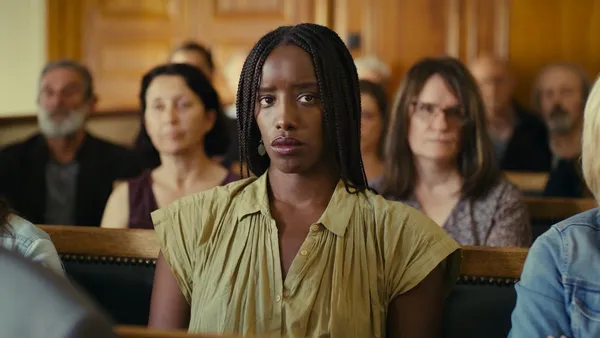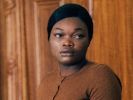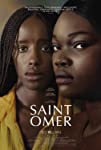Eye For Film >> Movies >> Saint Omer (2022) Film Review
Saint Omer
Reviewed by: Jennie Kermode

It’s not the type of work which wins the big awards – too simple, focused on getting results rather than getting attention – but Claire Mathon’s cinematography in the slow-paced, quietly devastating Saint Omer is a thing of beauty. Revealing every nuance as light filters through tall windows into a provincial French courtroom, it reveals the defendant, Laurence Coly (Guslagie Malanda), almost as an afterthought. Dressed in a soft brown suit which blends into the surrounding woodwork, she is small, quiet, speaking when spoken to in the unvarnished manner of one who has lost all hope. Yes, she acknowledges, she left her infant daughter alone on a beach where she would be drowned when the tide came in. No, she does not believe that she is guilty of murder.
The film is based on a real trial which director Alice Diop attended as an observer in 2016. Here, we see it through the eyes of Rama (Kayije Kagame), a novelist who is seeking inspiration for a modern reworking of the myth of Medea but finds something else entirely. The deep sadness and sense of dislocation which saturate the film are quite at odds with what we have learned to expect of courtroom drama. What begins as a conventional mystery, an attempt to position guilt, soon turns out to be something much more complex and harder to pin down. This has a profound effect on Rama, the observer. As viewers, we find our time split between direct observation of the case and witnessing the way she responds to it, especially in light of the fact that she is pregnant. Issues around maternity and associated responsibility don’t lead her, or the audience, in the direction you might expect.

Laurence is young, with little experience of living independently. We watch her as she details a family background suggestive of emotional neglect, and her subsequent cohabitation with an older man who seems to have lost interest in her, or never really seen who she was in the first place. Traditionally, this would be deemed irrelevant to her actions on the beach. Diop subtly demonstrates why it is not. There is also a reflection, here, on the immigrant experience, and how easy it is to become isolated in a new country. The defendant's high intelligence and educational opportunities are often cited, but rather than helping, they seem to have added to her isolation.
Malanda is impressive, conveying a weight of emotion despite flattened affect, and letting us see something of the process through which a once ambitious young woman was broken down. The film does not rush to judgement, leaving space for viewers to draw their own conclusions, but the very rarity of maternal infanticide prompts one to look for explanations beyond the prosaic, and it’s clear that Laurence is not the calculating, malicious monster which women in her position tend to be characterised as. She seems to struggling, like the courtroom observers, to understand her actions, looking to the lawyers to make sense of them even as they look to her.
Whilst Laurence has had time to contemplate her situation, Rama is thrown in at the deep end, and in some ways she is the more difficult character to get to grips with. The connection which she feels with Laurence as a fellow woman of colour in a predominantly white society is complicated by the very different relationships which they have with aspects of their heritage. Rama can recognise the sincerity of Laurence’s claims that she was affected by witchcraft where others in the courtroom plainly cannot, but she doesn’t share the defendant's belief system. What she does share is an understanding of how it feels to be perceived as an outsider and mistrusted accordingly. Tension builds throughout the film as we wait to see whether or not the court will afford justice to the accused woman.
Taking its time, nuanced and thoughtful, this is not a film likely to enjoy mainstream success, but it’s a marvellous example of cinematic craft and has important things to say. Those willing to engage will find it difficult to forget.
Reviewed on: 02 Feb 2023

















